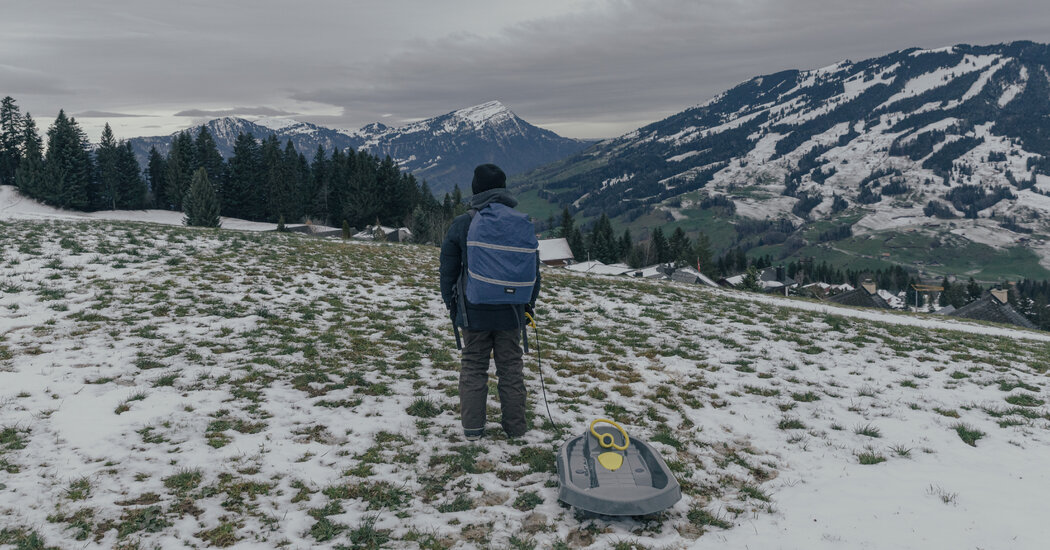Sporting events have also suffered. In the German Alps, the Alpine Skiing World Cup has canceled some events because unusual winter rains had ruined groomed ski slopes.
In the Bavarian village of Ruhpolding, tourism director, Gregor Matjan, helped the town save its old tradition of a Biathlon World Cup, a race that combines cross-country skiing with rifle shooting.
This year, biathlon goers crept through the mud to watch competitors whip down a track of “farmed snow”—snow stored and packed from the previous winter and covered in reflective tarpaulin. Because the capped poles don’t need electricity for cooling, he says it’s a relatively environmentally friendly option.
“This year was really exceptional, but we know that climate change will make these kinds of years more common,” he said. “So we need to find ways to deal with the economic impact.”
Some, like Thomas Schmid in Sattel, have opened businesses that embrace the coming change.
Mr. Schmid, a professional asset manager, sold his father’s traditional alpine herd and bought goats, shocking some of his neighbours. But goats, he said, with their small hooves and lighter weight, cause less damage to alpine vegetation that is more exposed without winter snow cover. And goats can withstand the changing temperatures better than cows.
He and his sisters have now opened a restaurant and shop, Blüemlisberg, and are experimenting with making goat’s milk chocolate and ice cream. They invite the children of tourists to come and play with the goats, and hikers to finish mountain tours in their restaurant with goat cheese fondue.
“I’m from here – it hurts me too to think we can’t ski here anymore,” said Mr Schmid. “But people are starting to accept this. The climate is changing. So we have to too.”

